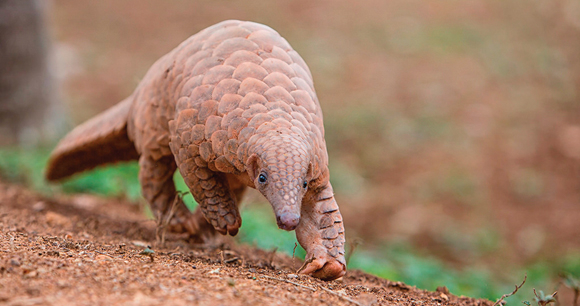
Washington, DC—From documenting how tourist attractions intruded on the habitat of the Grand Cayman blue iguana, to discussing how post-pandemic housing insecurity impacts animals, the winners of the 2023 “A Voice for Animals” contest use creative storytelling and log countless volunteer hours to protect disappearing species from human-caused hazards.
The annual contest offers high school students ages 14 to 18 the opportunity to win cash prizes for essays, videos or photo essays that explore strategies to protect imperiled species and mitigate animal suffering. It is sponsored by the Animal Welfare Institute (AWI) and the Humane Education Network, with additional support from the Palo Alto Humane Society.
More than 200 entries were judged on presentation, originality, and effectiveness of solutions to problems confronting endangered species, monk parakeets, octopuses, oysters, horses, and more.
“The 2023 winners found inventive ways across different media platforms to raise awareness for animals in need,” said Regina Terlau, AWI’s humane education program coordinator and co-manager of the contest. “AWI is proud to support this inspiring generation of animal advocates as they use new technologies, thought-provoking research, and grassroots outreach to reduce animal suffering.”
Previous contest winners have gone on to develop a sea turtle education program, a shelter for stray dogs in Mexico, an outdoor aviary for rescued birds, and a mobile app to facilitate pet adoptions. Others have started school clubs, created lesson plans, and engaged in service learning projects.
This year’s contest, which awarded a total of nearly $5,000 to 21 winners, featured a special category for students to focus on challenges impacting animals in their local communities. Applicants also had the choice to examine other topics more broadly in the categories of Wildlife in the Oceans, Wildlife on Land, Farm Animals, and Companion Animals.
The first-place winners are:
- Adoriam DeWalt of Houston, Texas, for the video “Friends and Feathers,” which describes the loss of migratory bird populations in Houston and documents DeWalt’s efforts, through a series of workshops, to educate her community about the importance of making backyards more bird-friendly.
- Jenna Madary of Glen Ellyn, Illinois, for the photo essay “Why the Housing Crisis is an Animal Welfare Issue,” which details Madary’s efforts to develop a website to connect pet owners facing housing insecurity with foster homes, veterinarians, animal shelters, and pet pantries.
- Ruby Anzo of Surprise, Arizona, for the “active involvement” essay “Awareness on Puppy Mills.” Anzo used a hashtag campaign, classroom presentations, a car wash, and a pet donation drive to encourage people to adopt homeless animals rather than contribute to the puppy mill pipeline.
- Paige Gregory of Virginia Beach, Virginia, for the essay “The Necessity of Oysters in the Chesapeake Bay Estuary,” which outlines the “real treasures inside an oyster shell.” Gregory examines how Chesapeake Bay oysters contribute to global aquatic health, yet face dangers from overharvesting, disease, and habitat loss.
- Shannon Hong, of Albertson, New York, for the essay “Monk Parakeets: The So-Called Avian Intruders,” which details how these ecosystem engineers are labeled as invasive pests in many parts of the world, including in the United States. Through volunteering at a local environmental center, Hong introduces the public to Boon, the resident monk parakeet, to foster a more personal connection to this maligned species.
- Laura Parra Gómez of Bogota Columbia, for the essay “Kiara’s Voice a story behind unregulated dog daycare centers,” which explains how Bogota’s lack of regulations surrounding dog daycare facilities led to the disappearance of Kiara, a Bernese mountain dog.
- Ka Yee Brianna Xiao of Hong Kong for the essay “A Cry for Pangolins,” which discusses the dire threats faced by pangolins due to habitat loss from deforestation and encroaching agriculture, and rampant poaching for their meat and scales. Xiao recommends engaging a broader audience in pangolin conservation through social media, celebrity advocacy, and documentary films.
Click here for more information on the “A Voice for Animals” contest and to review all winning entries.
Marjorie Fishman, Animal Welfare Institute
[email protected], (202) 446-2128
The Animal Welfare Institute (awionline.org) is a nonprofit charitable organization founded in 1951 and dedicated to reducing animal suffering caused by people. AWI engages policymakers, scientists, industry, and the public to achieve better treatment of animals everywhere—in the laboratory, on the farm, in commerce, at home, and in the wild. Follow us on Facebook, Twitter, and Instagram for updates and other important animal protection news.